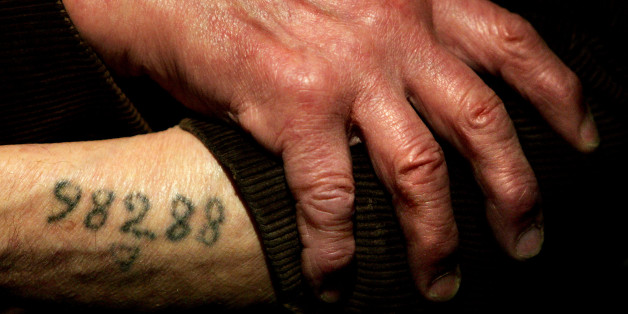
On this Holocaust Remembrance Day, I am very concerned when I see presidential candidates fanning the flames of animosity. In the ’30s in Germany, Jews were the target, but the dangerous rhetoric of today is focused on Muslims and particularly Syrian refugees. Like the anti-Semitic tirades of decades ago, many of the same ingredients are present in the speeches of candidates who hold surprisingly high levels of support from the American people.
It is an all too familiar recipe: Strip away individuality and wrap everyone in the group into an amorphous and frightening entity. Speak about what they will take from us and add in a strong nationalist sentiment that allows people to justify their hatred as patriotic allegiance. It was this lethal combination that sent my family to Auschwitz, my father to the gas chamber, and me, a boy of 16, to a slave labor camp where I was forced to build railroads on starvation rations. The SS guards were able to do this to us because they lost sight of our humanity and of our individuality.
“Leaders can be persuasive, and rhetoric can be powerful, but we always have the option to think more deeply than these politicians…”
Unfortunately, there will always be leaders who will attempt to garner power through the vilification of others. McCarthy in the ’50s, and George Wallace a little later, come easily to mind. History is never on the side of these leaders. Instead, it reveres the people who opposed them. And so it will be with our fear mongering candidates and the citizens who refuse to support them.
Leaders can be persuasive, and rhetoric can be powerful, but we always have the option to think more deeply than these politicians and to resist being swayed by words meant to denigrate others. We have some powerful tools in the arsenal of our own minds. Scientists have found that we can resist prejudice by focusing on the commonalities between others and ourselves, by recognizing the joys and pains experienced by the individual and how these are so very similar to our own experiences.
When I see Syrian refugees on television struggling to make their way to safety, I see the similarity between their plight and my own struggles to come to America after I was liberated from the camps. I can remember what it was like to flee danger in search of a safe place to begin my life anew, the fear as we bribed Soviet border guards to let us pass, the arduous journey, day and night, carrying all of our belongings on our backs, the grief and worry for family who had stayed behind.
If you have been lucky enough, like most Americans, to not know this suffering, then take what you do know and use your imagination. Think about the last time you were frightened for yourself or a loved one, or a time when you felt scared and alone. Think about the last time your travel plans went awry and you were stuck at some airport, tired and hungry. Multiply that discomfort by some amazingly high number, and you can generate the human empathy to gain at least a little insight into the plight of a Syrian refugee. And remember a time when hope kept you going through great difficulty, and when the offer of even a small assistance from someone else took on great magnitude for you.
I felt that human connection when I was in the camps. I had the good fortune to be assigned to work for two weeks with a kind German civilian engineer. He did not see me as the dirty vermin that I was in the twisted minds of my SS guards. He saw me as a 16-year-old boy in desperate condition, close to starvation and completely alone in the world. He snuck me food from the SS kitchen — a crime for which he could have been punished had he been discovered.
He was like a father to me for those days that marked a critical point in my survival. If he was able to see through the propaganda that surrounded him, step away from the easy path of prejudice and self-justification, and risk his life in an act of humanity, then we as Americans, protected by all of the freedoms we enjoy, can do the same.
“Empathy can be painful — by definition it means feeling what another feels. But empathy is so much more courageous than hate.”
On this Holocaust Memorial Day, I ask you to make the necessary human connection to today’s refugees, see yourself in them and them in you, because that connection is the antidote to the hateful ranting of politicians. Empathy can be painful — by definition it means feeling what another feels. But empathy is so much more courageous than hate. Hate killed my father, empathy saved me, not only when I was helped in the camps, but when America opened its doors to me in 1947 and gave me a new home and a new start.
I served in the U.S. military several years later, I am a devoted citizen, I have made a contribution to this country by speaking to school kids about my experiences. And in their minds, filled with empathy for the pain I experienced, the German civilian engineer is a hero. History rewards humanity, every time.
Written by Gene Klein (with his daughter Jill Klein, Author of We Got the Water: Tracing My Family’s Path Through Auschwitz).
Reposted from Huffington Post